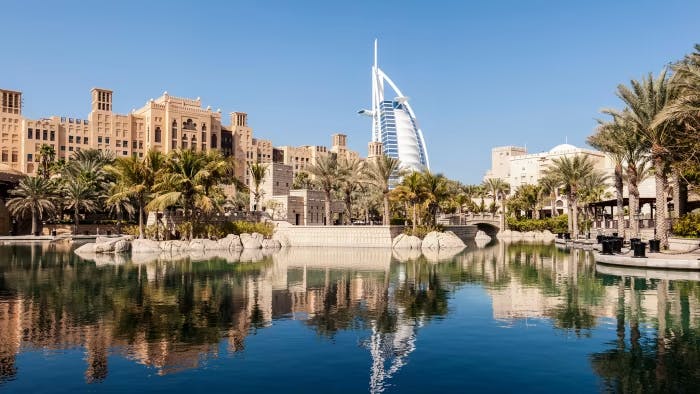Guide to Setting Up a Business in Dubai from the UK
With its zero personal income tax policy, a relatively low corporate tax rate of 9%, and access to free zones that allow 100% foreign ownership, Dubai provides the ideal foundation for businesses looking to expand internationally.
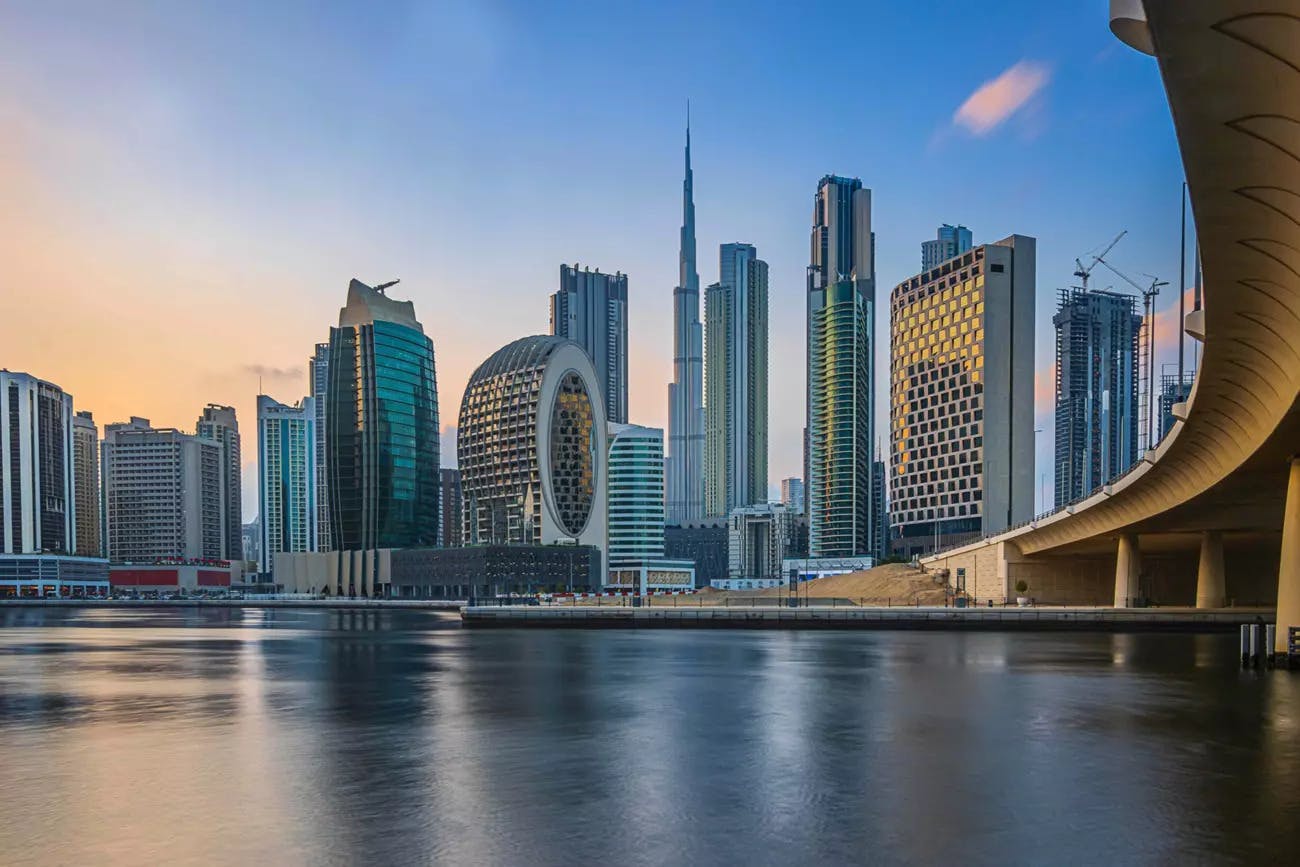
With its zero personal income tax policy, a relatively low corporate tax rate of 9%, and access to free zones that allow 100% foreign ownership, Dubai provides the ideal foundation for businesses looking to expand internationally.
Whether you're seeking to open a company to streamline global operations, capitalize on the city's growing economy, or gain a residency visa through company formation, the process is more accessible than you might think.
This guide explores the essential steps and considerations for UK entrepreneurs aiming to establish a presence in Dubai, answering key questions about investment requirements, tax implications, and residency visas.
With careful planning and the right support, you can unlock the boundless potential of setting up your business in one of the world’s most dynamic cities.
Table of Contents:
- How to Set Up a Business in Dubai as a UK Entrepreneur
- Benefits of Starting a Business in Dubai
- Tax Benefits for Businesses in Dubai Compared to the UK
- Take the Next Step: How to Start Your Dubai Business Journey
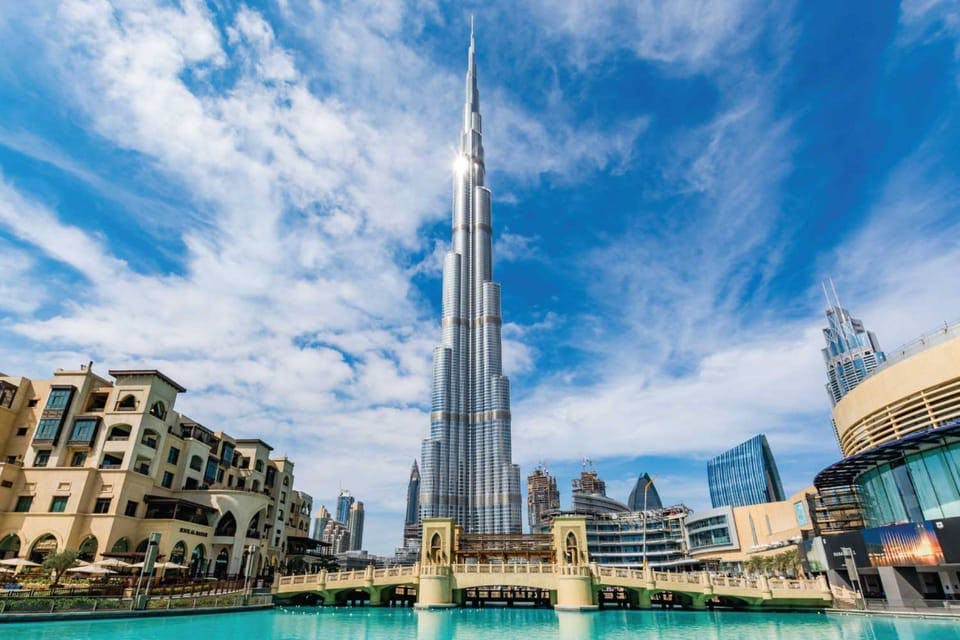
How to Set Up a Business in Dubai as a UK Entrepreneur
Setting up a business in Dubai as a UK entrepreneur can be an exciting yet complex endeavor, but with the right guidance and understanding of the process, it can be a strategic move to expand your global reach. Dubai's strategic location, state-of-the-art infrastructure, and pro-business policies make it an ideal choice for business owners looking to tap into the Middle East, Asia, and Africa markets.
Here's a detailed look at how you can establish a business in Dubai while residing in the UK.
Understand the Business Landscape in Dubai
Before taking any concrete steps, familiarize yourself with the different business environments Dubai offers: the Mainland, Free Zones, and Offshore structures.
Each of these options comes with its own set of advantages and regulations:
Mainland
Companies established on the Mainland have access to Dubai’s local market without restrictions. You can trade within Dubai and across the UAE freely. However, Mainland businesses traditionally required a local Emirati sponsor who holds 51% of the company shares. Thanks to recent reforms, certain sectors now allow 100% foreign ownership.
Free Zones
Free Zones are designated areas that provide numerous incentives, including 100% foreign ownership, tax exemptions, and the ability to repatriate profits fully. These zones are ideal for companies that plan to engage in international business and do not require a local market presence.
Offshore
Offshore companies are primarily for international business operations and asset protection. These companies cannot trade within the UAE but benefit from no corporate taxes and privacy in ownership details.
Choosing the right structure depends on your business goals, the nature of your services, and your market strategy.
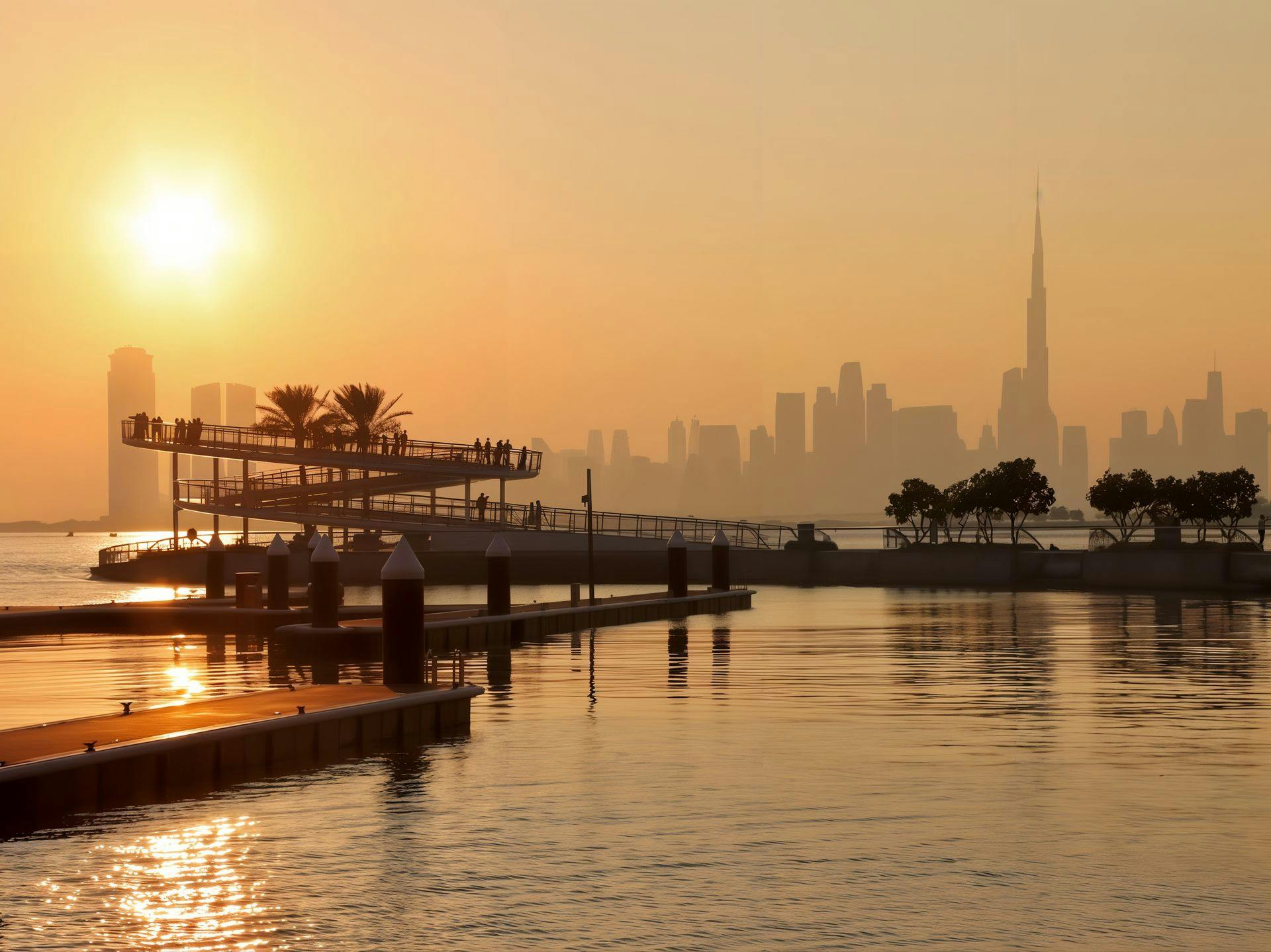
Choose Your Business Activity and Legal Structure
Dubai’s Department of Economic Development (DED) and the relevant Free Zone authorities offer a wide range of permitted business activities. Your chosen activity will determine the licenses you need, which include commercial, industrial, and professional licenses.
It's essential to research thoroughly and list all the potential activities your business might undertake to avoid future licensing issues.
Next, decide on a legal structure. Options include:
Sole Establishment
Suitable for individuals providing professional services, but the liability is unlimited.
Limited Liability Company (LLC)
Popular for those wanting to trade within the UAE market. Previously, this required a local sponsor, but certain activities now permit 100% ownership.
Branch of a Foreign Company
If you wish to have a business presence while keeping your parent company in the UK, this could be a viable option.
Consult with local advisors to understand which legal framework best aligns with your business strategy.

Register Your Trade Name
The next step involves choosing and registering your trade name with the relevant authorities. Your trade name should reflect your business activity and comply with the UAE’s naming regulations. Avoid using offensive language or any references to religious or political entities.
Additionally, if the name includes personal elements (like your own name), make sure it meets the specific guidelines.
Once you have a shortlist of names, submit your preferred option for approval. The DED or Free Zone authority will ensure the name is unique and acceptable.
Obtain Initial Approvals
Depending on your business activity and chosen jurisdiction, you may need initial approvals from various government entities. These can include:
The Department of Economic Development (DED): For Mainland businesses.
Relevant Free Zone Authorities: For companies in designated Free Zones.
Ministry of Interior or Industry-Specific Regulators: If your business involves sectors like health care, education, or finance.
Initial approval allows you to proceed with the company formation but does not permit you to conduct business until your license is finalized.
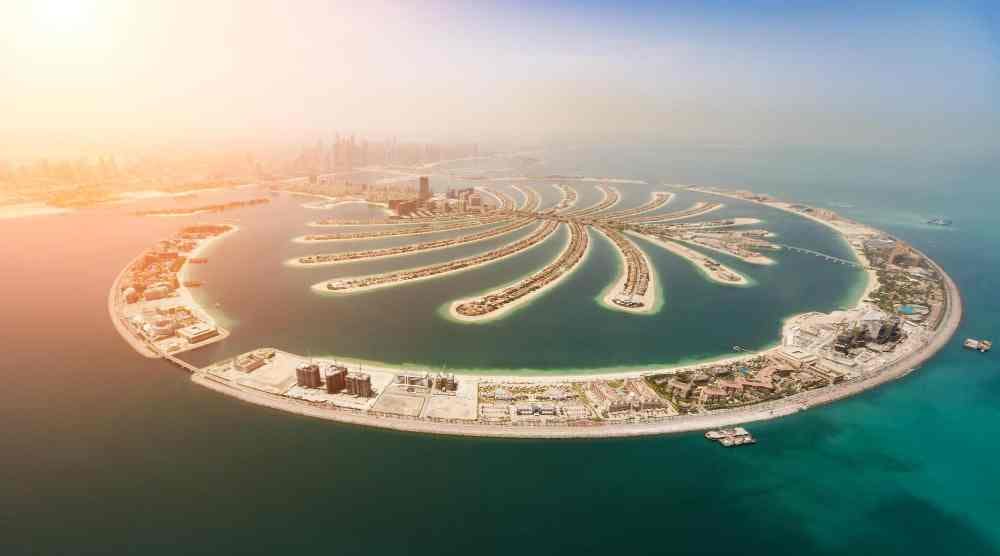
Draft Your Memorandum of Association (MOA)
The Memorandum of Association (MOA) outlines the scope of your business, ownership details, and share distribution. If you are forming an LLC, the MOA must detail the roles and responsibilities of each shareholder.
Work with a legal professional to ensure your MOA complies with local laws and accurately reflects your business’s operations.
Secure a Business Location
In Dubai, all businesses must have a physical address, even if they operate digitally. Depending on your business type, you may need an office space, warehouse, or virtual office.
Free Zones often provide affordable and convenient office solutions tailored to startups and international businesses. If you’re setting up on the Mainland, leasing a space approved by the DED is necessary.
Finalize Your Business License
Once all documentation is ready and your business premises are secured, submit your application for the final business license. The process and cost can vary significantly between the Mainland and Free Zones, so plan accordingly.
Apply for Visas
To operate legally, you may need to apply for residency visas for yourself and your employees. The number of visas permitted depends on your office size and business structure.
The process involves health checks, applying for an Emirates ID, and registering with immigration authorities.
Free Zones usually simplify the visa application process, while Mainland companies may have more stringent requirements. Additionally, as a business owner, you have the option to sponsor your family members for residency.
Open a Corporate Bank Account
Opening a bank account in Dubai can be one of the more challenging steps due to stringent regulations designed to prevent money laundering. Choose a bank that aligns with your business needs and be prepared to submit comprehensive documentation, including:
- Trade license
- MOA
- Shareholder details
- Business plan (for some banks)
Some banks also require a minimum balance, so research the best options for your type of business. Having a local consultant can be immensely helpful in navigating this step efficiently.
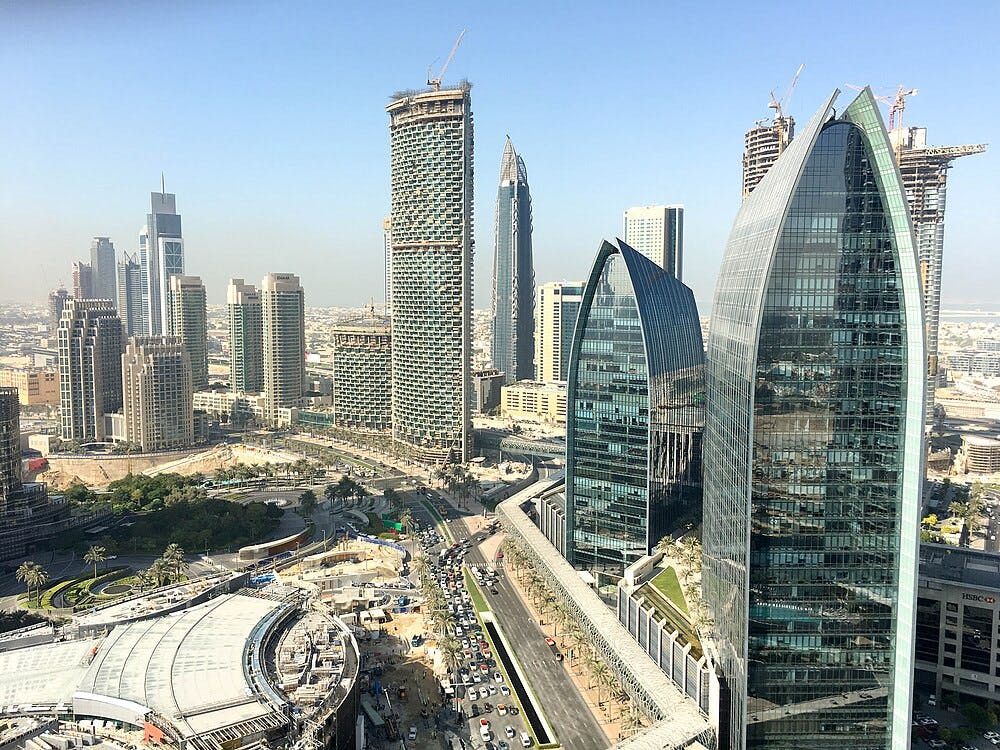
Benefits of Starting a Business in Dubai
Dubai has earned its place as one of the world’s most attractive business destinations, offering an unparalleled environment for both startups and established companies.
For UK entrepreneurs and businesses, establishing a presence in Dubai opens up significant opportunities for growth, profitability, and market expansion. Here’s an in-depth look at why Dubai stands out and the key benefits of starting a business there.
Strategic Geographical Location
Dubai’s strategic location at the crossroads of Europe, Asia, and Africa makes it a vital global trade and business hub. It serves as a gateway to markets with billions of consumers, providing businesses with easy access to the Gulf Cooperation Council (GCC) states, the Middle East, Africa, and South Asia.
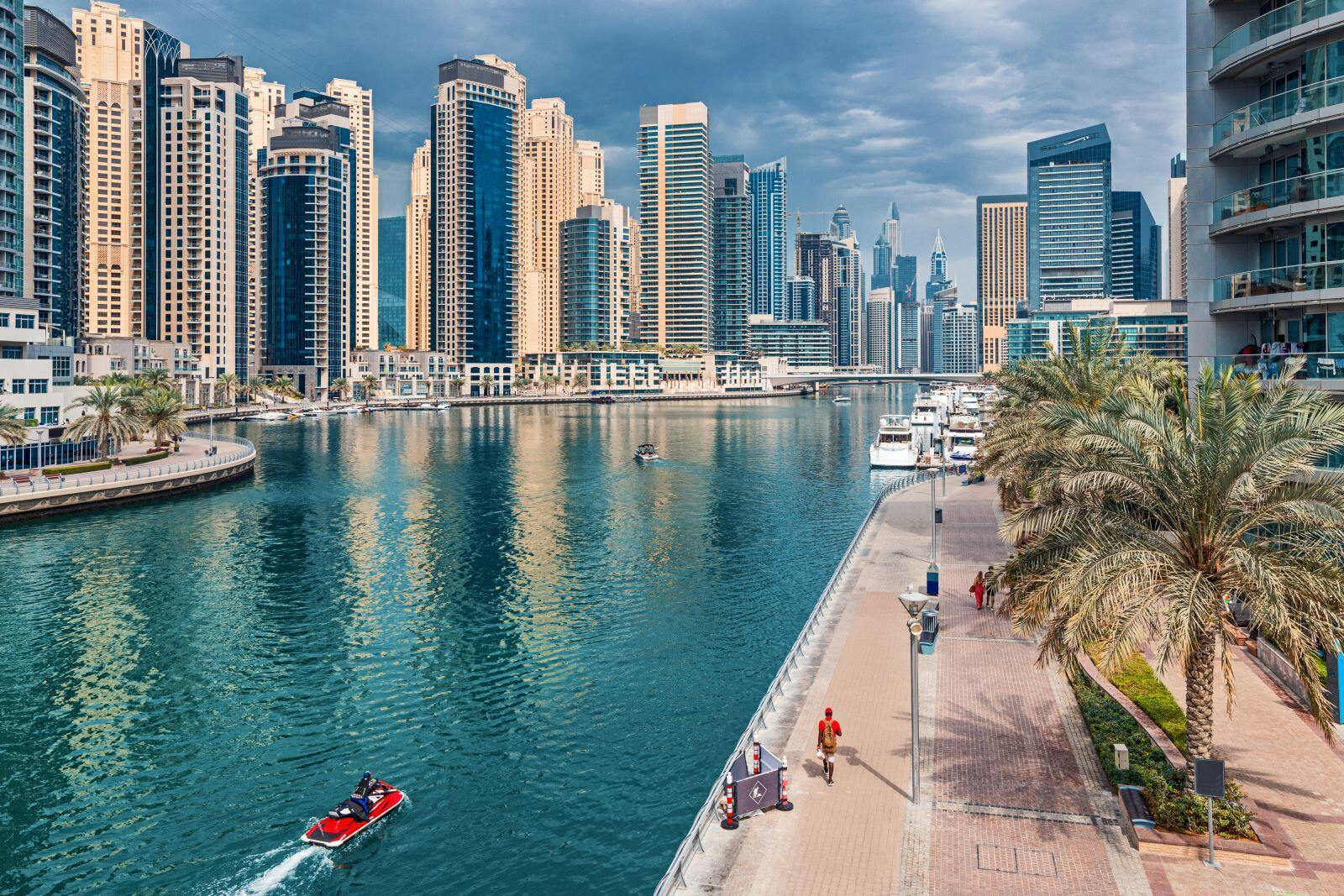
Business-Friendly Economic Policies
The UAE government has implemented several pro-business policies to attract foreign investment and boost economic growth. These policies include:
- 100% Foreign Ownership: In recent years, reforms have been introduced that allow 100% foreign ownership in many sectors, particularly in Free Zones and certain Mainland activities. This has eliminated the need for a local sponsor, giving international entrepreneurs full control of their business.
- Ease of Doing Business: Dubai ranks highly on the global index for ease of doing business, thanks to its streamlined procedures for company registration, licensing, and setting up operations. The government continues to simplify regulations, making the setup process faster and more efficient.
Favorable Tax Environment
Dubai’s tax policies are a major draw for UK businesses, especially those looking to optimize costs and maximize profitability. Key tax benefits include:
- No Personal Income Tax: Residents, including business owners, do not pay personal income tax, allowing for higher disposable income and better reinvestment potential.
- Low Corporate Tax: Starting from June 2023, Dubai introduced a corporate tax of just 9% on annual profits exceeding AED 375,000 (approx. £80,000), which is significantly lower than many Western countries. Businesses that earn less than this amount enjoy zero tax.
- Tax-Free Zones: Companies registered in Free Zones can benefit from tax exemptions, including zero customs duties and no corporate tax for up to 50 years. Additionally, profits can be fully repatriated, giving businesses complete flexibility in managing their finances.

High Quality of Life and Lifestyle Appeal
One of Dubai’s standout features is its quality of life. With a safe and secure environment, world-class healthcare, a vibrant expat community, and luxurious lifestyle offerings, Dubai is an attractive place to live and work.
The city boasts stunning architecture, abundant leisure activities, top-tier restaurants, and endless recreational opportunities.
Tax Benefits for Businesses in Dubai Compared to the UK
One of the most compelling reasons for UK entrepreneurs to consider establishing a business in Dubai is the significant tax advantages the emirate offers.
The favorable tax environment in Dubai is designed to attract foreign investment, stimulate economic growth, and create a robust, business-friendly atmosphere. When compared to the UK’s tax system, Dubai provides several key financial benefits that can substantially boost a company’s bottom line.
No Personal Income Tax
Perhaps the most striking tax benefit for business owners and employees in Dubai is the complete absence of personal income tax. In the UK, individuals face a progressive income tax system, with rates that can climb as high as 45% for top earners.
By contrast, residents of Dubai retain 100% of their income, significantly increasing their disposable income and providing a strong incentive for UK professionals and business owners to relocate.

Low Corporate Tax Rates
Starting in June 2023, Dubai introduced a corporate tax rate of 9% on annual business profits exceeding AED 375,000 (approximately £80,000). This rate is substantially lower than the UK’s corporate tax, which is set at 25% for most businesses as of 2023.
Small businesses and startups in Dubai that earn less than the specified profit threshold are exempt from corporate tax altogether, allowing new ventures to focus on growth without being burdened by heavy taxation.
No Value-Added Tax (VAT) on Exports
In the UK, businesses are required to pay VAT on most goods and services at a standard rate of 20%. In Dubai, VAT is levied at a much lower rate of 5%, and there are several exemptions and zero-rated items, especially for exports.
Businesses that focus on international trade or export services can benefit from reduced VAT liabilities, increasing profit margins and making their operations more cost-effective.
No Capital Gains Tax
In Dubai, there is no capital gains tax on investments, real estate sales, or business asset transfers. In the UK, capital gains tax can be as high as 20% for investments and even higher for property sales. For entrepreneurs and investors, Dubai’s tax-free environment for capital gains allows for more lucrative investment opportunities and better long-term financial planning.
No Inheritance Tax or Wealth Tax
Unlike the UK, which imposes inheritance tax on estates over a certain threshold, Dubai does not levy any inheritance tax or wealth tax. This absence allows entrepreneurs to pass on wealth and business assets to their heirs without incurring heavy tax liabilities. For UK business owners and high-net-worth individuals, relocating to Dubai or structuring business assets through the UAE can offer more favorable estate planning options.
This tax policy ensures that generational wealth is preserved and that families can plan for the future without the burden of high taxes. It also provides more flexibility for succession planning, ensuring that businesses can continue to thrive across generations.
Ready to transform your business ambitions into reality and take advantage of Dubai’s dynamic opportunities? Whether you’re looking to expand your market reach, benefit from favorable tax policies, or set up a strategic international base, our team is here to guide you every step of the way. With expert knowledge of the Dubai business landscape and experience in helping UK entrepreneurs establish successful ventures, we simplify the entire process—from initial consultation to final company registration. Reach out to us today, and let’s turn your Dubai business vision into a thriving success story!


